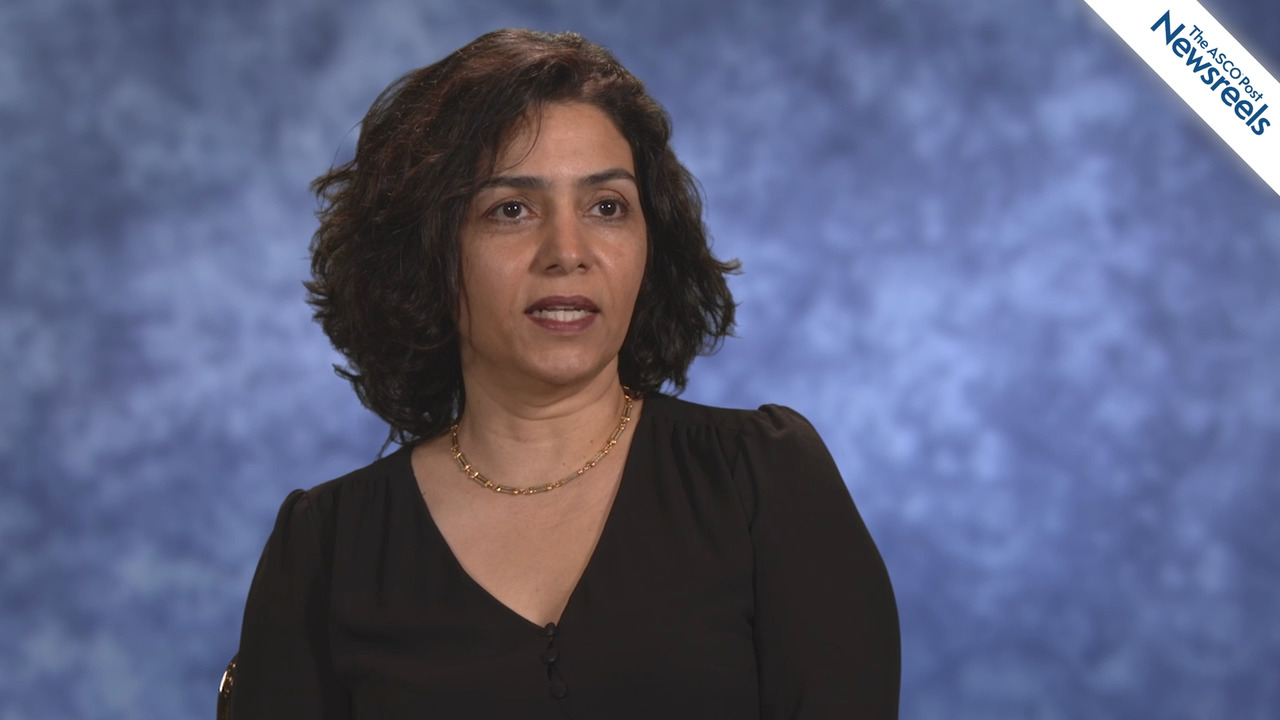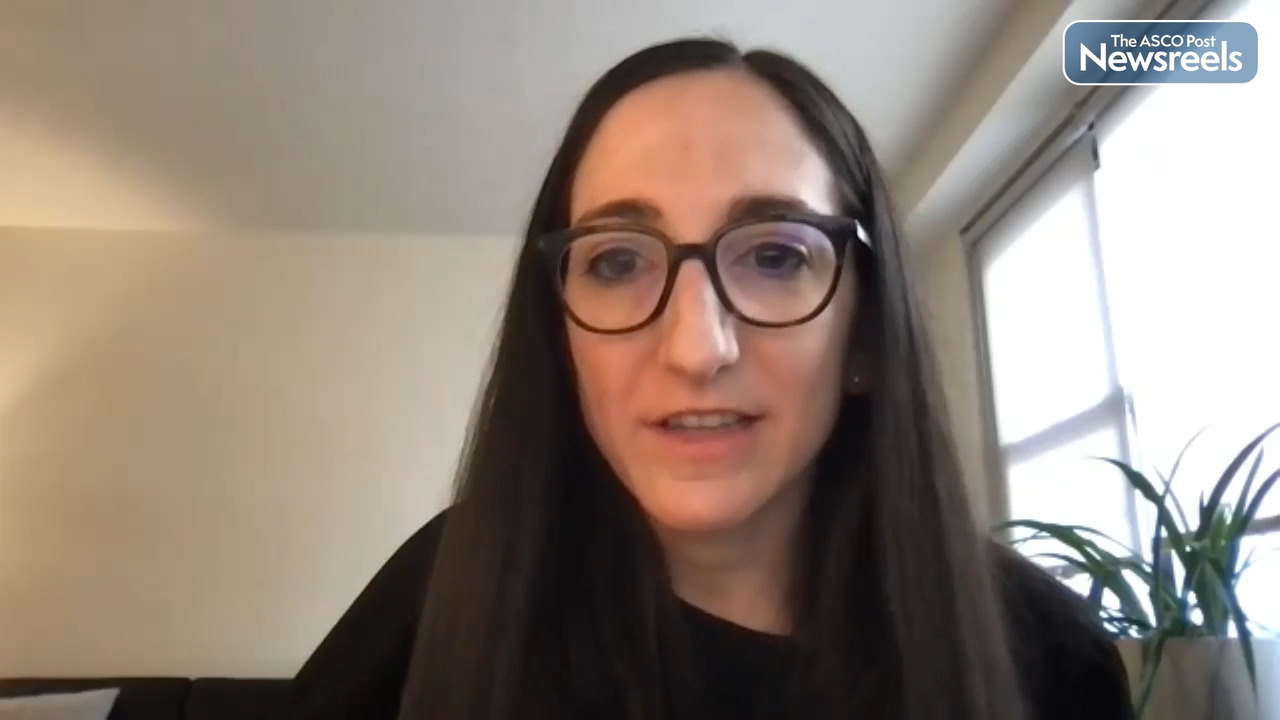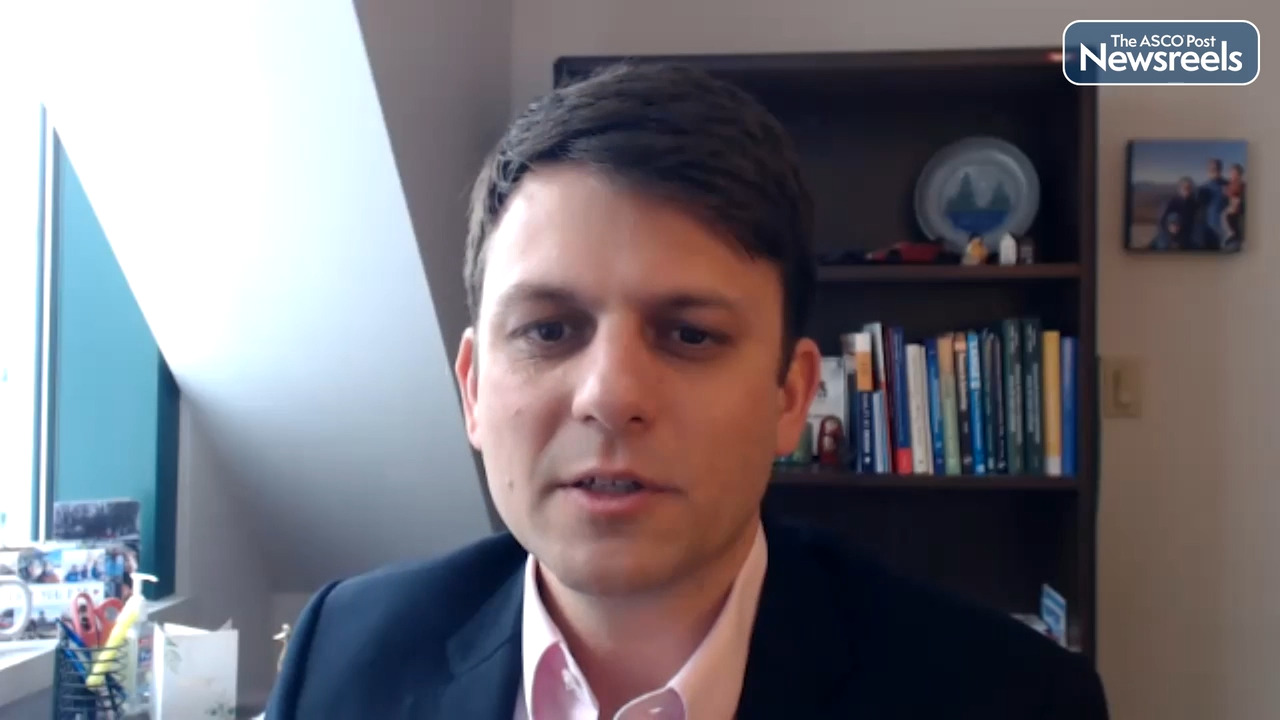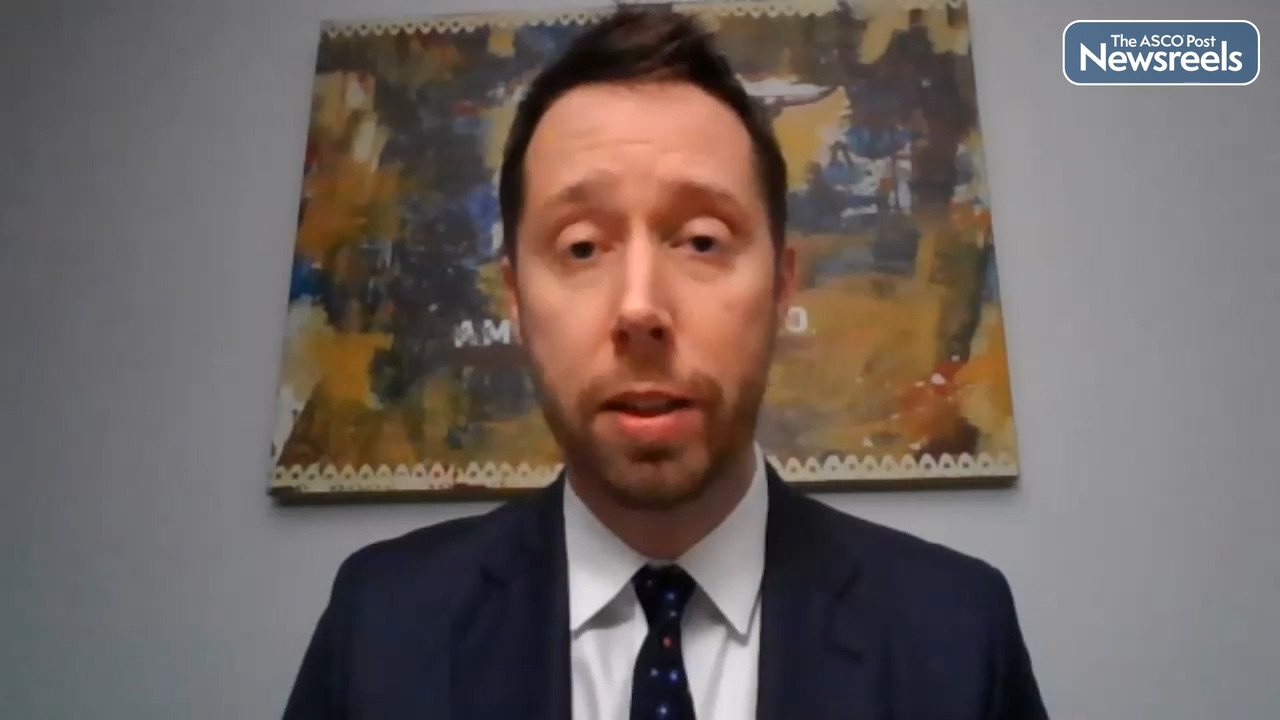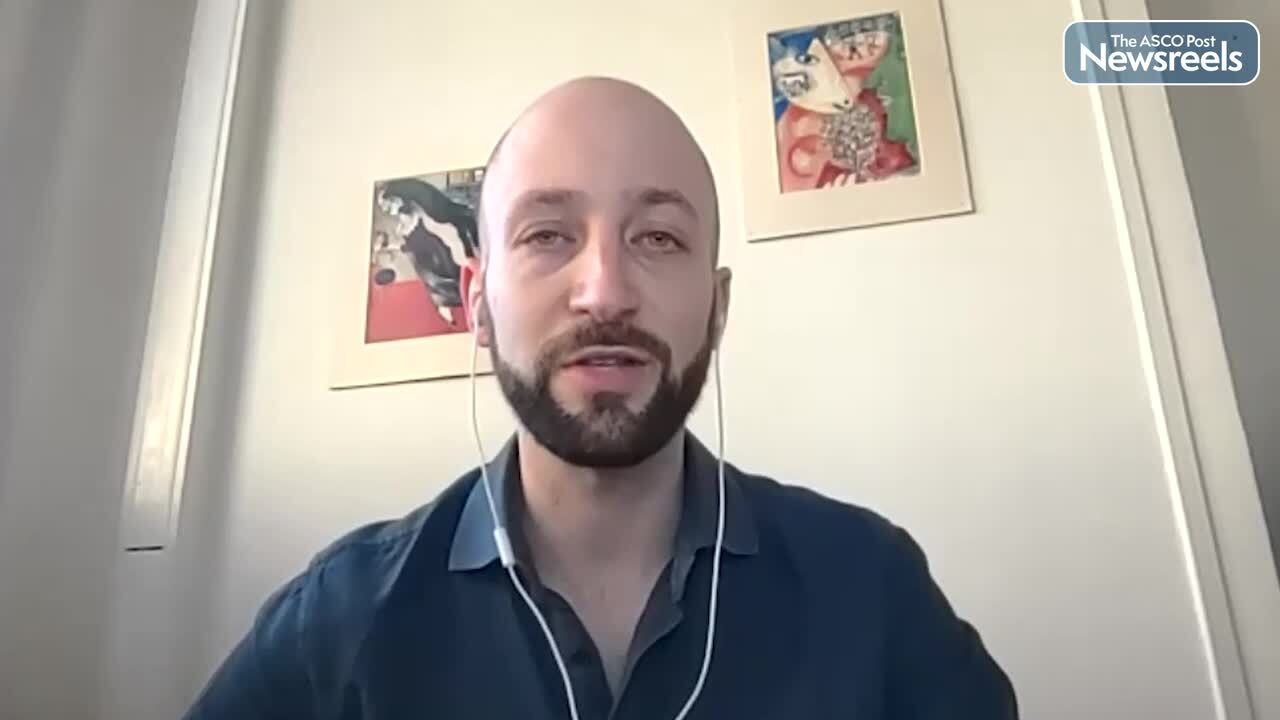Zev A. Wainberg, MD, on Gastric or Gastroesophageal Junction Adenocarcinoma: Follow-up Data on Pembrolizumab and Chemotherapy
2022 ASCO Gastrointestinal Cancers Symposium
Zev A. Wainberg, MD, of the University of California, Los Angeles, discusses an update, of 25 additional months, on phase III safety and efficacy results from the KEYNOTE-062 trial. This study compared pembrolizumab with or without chemotherapy vs chemotherapy alone for patients with PD-L1–positive advanced gastric or gastroesophageal junction adenocarcinoma (Abstract 243).
The ASCO Post Staff
Afsaneh Barzi, MD, PhD, of City of Hope Comprehensive Cancer Center and AccessHope, discusses results from a phase I/II study of regorafenib and pembrolizumab in refractory microsatellite-stable colorectal cancer. Although the trial did not meet its primary endpoint, the median overall survival is “provocative,” says Dr. Barzi. An analysis of biomarkers to identify patients with a longer duration of benefit is ongoing (Abstract 15).
The ASCO Post Staff
Melissa Amy Lumish, MD, of Memorial Sloan Kettering Cancer Center, discusses new findings showing a 100% complete response rate to PD-1 blockade alone among the first 11 patients with locally advanced mismatch repair–deficient rectal cancer treated with this approach. None of the patients required chemoradiation or surgery, thus avoiding their attendant morbidities, and so PD-1 blockade may represent a new treatment paradigm. Follow-up on the durability of response is needed (Abstract 16).
The ASCO Post Staff
Gabriel A. Brooks, MPH, MD, of the Norris Cotton Cancer Center, discusses key studies that, when synthesized, suggest the benefits of oxaliplatin may be less than often assumed. The toxicities are well described (especially neuropathy), and the agent should be used cautiously and sparingly beyond the third month of adjuvant treatment for patients with colon cancer and in the elderly or frail with metastatic disease.
The ASCO Post Staff
Van K. Morris, MD, of The University of Texas MD Anderson Cancer Center, discusses phase I/II data suggesting that encorafenib plus cetuximab and nivolumab is safe and well tolerated for patients with microsatellite-stable BRAF V600E–mutated metastatic colorectal cancer (Abstract 12).
The ASCO Post Staff
Romain Cohen, MD, PhD, of Sorbonne University and Saint-Antoine Hospital, discusses phase II results of the GERCOR NIPICOL study, which suggests nivolumab plus ipilimumab at a fixed duration of 1 year continued to show durable activity in patients with chemoresistant microsatellite instability–high/mismatch repair–deficient metastatic colorectal cancer after 3 years of follow-up. Dr. Cohen points out there is now some question as to whether all patients need 2 years of therapy (Abstract 13).
